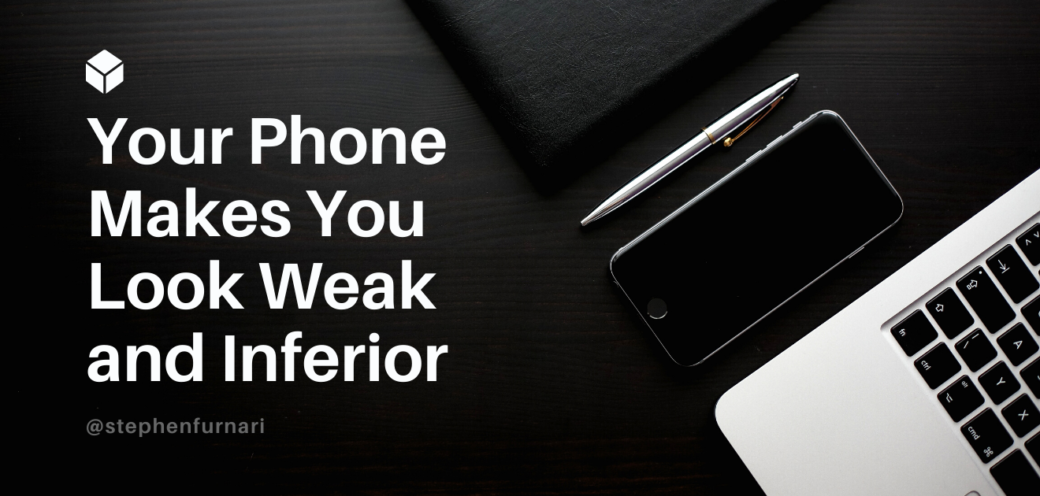Using a cell phone when networking sends negative body language that can hurt your chance to develop referral relationships.
I play bass guitar in a band with other middle-aged guys. It’s one of the more juvenile things I do with my free time.
Recently we played at a local open jam night — mostly to network with the other musicians with hopes of being invited to play at other gigs. As it turns out, the local music scene is a lot like attorney networking: the best “gigs” are frequently referred to you by your peers.
For me, the event was another reminder that I’m not a natural at networking. I don’t excel at making witty small talk and often feel like a gangly oaf in a crowded room. So instead of forcing myself to meet new people, I mindlessly relied on the easiest of crutches: my smartphone.
There are 275.7 million cell phone users in the United States, which is 84% of our total population. Some of us are entering our fourth decade of cell phone use, and yes, we’ve developed bad habits that may negatively affect our business development efforts.
No one wants to look weak or inferior, especially not lawyers
I was reminded of the advice body language expert, Vanessa Van Edwards gives: staring at a smartphone while networking gives off the vibe that you are not interested.
It also makes you look weak and inferior.
According to social psychologist and Harvard professor Amy Cuddy, it’s impossible to strike a powerful pose while texting. Think about your posture when you use a smartphone, your head is down, your neck is bent, shoulders slumped and eyes are looking down. Whether it is intentional or not, your posture gives the impression that you are feeling low in confidence, which sends a very negative message to other people.
Not good if your networking goal is to find the next great referral partner or key client.
Obsessively checking your phone communicates that you’re not “high status.”
Eye contact creates a sense of emotional connection and conveys confidence and respect. Essential components to making connections in a networking context.
According to a study performed by communications-analytics company Quantified Impressions, Adults make eye contact between 30% and 60% of the time in an average conversation, but that 60% to 70% is required to make an emotional connection. Quantified Impressions partially blames this deficit on the use of mobile devices.
Withholding eye contact, even by a careless glance at your phone, can inadvertently communicate that you are not of high status, or that the people around you are not that important.
Experts recommend that holding eye contact for 7 to 10 seconds in a one-on-one conversation and 3 to 5 seconds in a group setting is most effective, but more than that can come across as creepy.
The use of a phone as a “crutch” to pass time (unintentionally) sends a terrible message
For many of us, networking situations, in particular group networking events, can be uncomfortable. And in uncomfortable situations, we’ve become accustomed to reaching for our phones as a crutch.
The habit is all about pacifying our own insecurities. But for those of us who want to get the most value for time spent networking, it’s worthwhile to understand the unintended message this habit communicates.
According to researchers, the primary motivation for the use of smartphones in public places is the avoidance of engagement with surrounding individuals. Essentially, mobile phones allow us to “hide” in plain sight.
For introverts who may struggle to get into worthwhile conversations at networking events, the use of a mobile device will compound your challenges. You unintentionally convey a message to peers that you don’t want to engage in conversation, so they avoid you altogether.
Optimize networking ROI by not making smartphone mistakes
Smartphone use has become a ubiquitous part of modern life. But for busy lawyers, getting a highly optimized ROI from time spent networking is critical. Here are some tips to avoid sending the wrong message about your mobile device usage:
Leave your phone in your pocket. Networking events never last long, take a break, and put the phone away.
Learn a few networking tactics. To end your habit of using your phone as an insecurity crutch, take five minutes to learn a few tactics so you feel less like a wallflower at networking events.
Adjust your stance. If you must check your phone, try holding it away from your body at about chest level. This way, you keep your body open and shoulders back, giving off a body language message of confidence.
Never pick up when engaged in a face-to-face conversation. Checking a text or taking a call during a one-on-one conversation sends the message that the person texting or calling is more important than the one you’re with. If you are lucky enough to find yourself in a one-on-one conversation and your goal is to find potential referral sources or a new client, never pick up the phone in the middle of a conversation. That is unless your goal is to earn a reputation for being rude.


